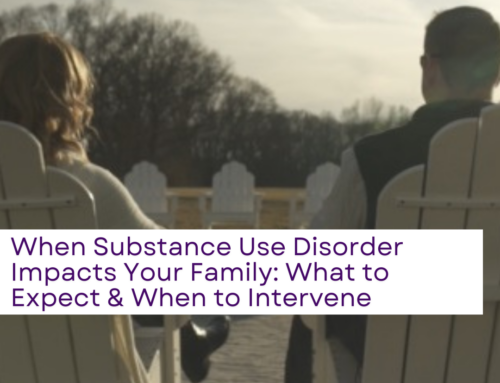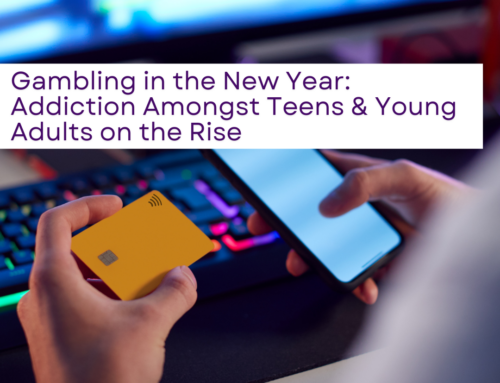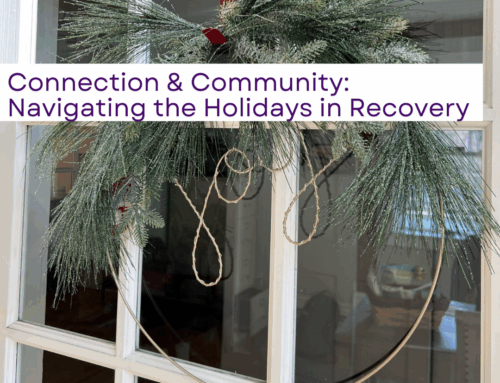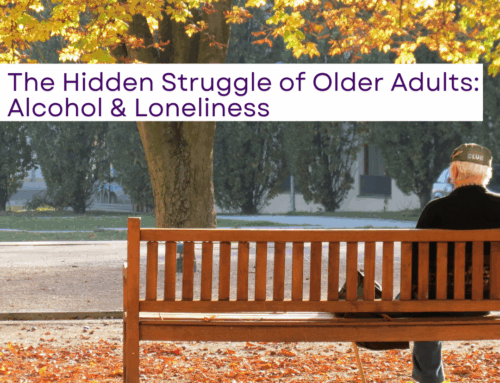 Boredom is part of everyone’s life, but it can be precarious for someone in early recovery from substance use. People who are newly sober find themselves with more time on their hands, time that used to be spent acquiring, using, or recovering from their substance of choice. Oftentimes people move away from healthier habits when they are actively drinking or using drugs, and it can be difficult to reestablish those habits in early recovery. Active alcohol and drug use can also bring a lot of chaos to someone’s life, and it can be an adjustment to get used to sober life at a more predictable pace.
Boredom is part of everyone’s life, but it can be precarious for someone in early recovery from substance use. People who are newly sober find themselves with more time on their hands, time that used to be spent acquiring, using, or recovering from their substance of choice. Oftentimes people move away from healthier habits when they are actively drinking or using drugs, and it can be difficult to reestablish those habits in early recovery. Active alcohol and drug use can also bring a lot of chaos to someone’s life, and it can be an adjustment to get used to sober life at a more predictable pace.
When we are drinking or using drugs, we numb out all our feelings. In early recovery, these feelings come to the surface unencumbered by drugs or alcohol and this can be overwhelming at times. Distracting oneself with healthy habits is a great antidote to boredom, but what do you do when you’re not used to healthy behaviors or have lost sight of the things you used to love to do?
Boredom as a Trigger in Early Recovery
Handling emotions of any kind can be a relapse trigger, and this is especially true in early recovery. Boredom can bring unwanted feelings of restlessness, irritation, and low self-esteem, and it’s important to learn and discover healthy ways to manage these feelings. The mental obsession that can accompany substance use also takes up a lot of space in the brain, so as the mental obsession fades the feelings of boredom may amplify.
Boredom is uncomfortable, but it is also an essential part of the recovery process and is a necessary stage of healing from substance use disorder. Learning to sit with difficult feelings is a practice that will come more easily the longer you’re sober, and cultivating healthy distractions is an important aspect of healing.
Will I Ever Have Fun in Sobriety?
 When contemplating getting sober (or when you’re newly sober) you may wonder what you will do for fun. It’s common to believe that there is no possible way that life can be fun without alcohol or drugs, but this is dysfunctional thinking that is actually part of the process of denial. These old unhealthy thinking patterns take time to break and put you at greater risk for relapse. For this reason, establishing healthy (and fun!) habits and behaviors is essential to success in early recovery.
When contemplating getting sober (or when you’re newly sober) you may wonder what you will do for fun. It’s common to believe that there is no possible way that life can be fun without alcohol or drugs, but this is dysfunctional thinking that is actually part of the process of denial. These old unhealthy thinking patterns take time to break and put you at greater risk for relapse. For this reason, establishing healthy (and fun!) habits and behaviors is essential to success in early recovery.
Here are some ideas for coping with boredom in constructive and healthy ways while you build and shape your new life:
- Take a Walk: “Move a muscle, change a mood” is especially applicable to the unpredictable range of emotions people feel when newly sober. Even light exercise, like a walk, has excellent health and therapeutic effects on your body and mind. Exercise releases chemicals like serotonin, endorphins, and dopamine, all of which contribute to a feeling of balance and wellbeing. In early recovery, these chemicals are usually out of whack from drug and alcohol use, so establishing a routine of light exercise helps speed up the regulation of emotions and gets you fit in the process!
- Create Routine: Using drugs and alcohol almost always adds chaos to our lives in some form or another, so establishing a structured routine in early recovery helps alleviate free-floating feelings of boredom or uselessness. Sometimes our hygiene becomes compromised when we are actively using, so even setting a goal of waking up at the same time every day, showering, and eating a healthy breakfast sets a positive tone for the rest of the day. The end of the day can also be difficult, so set a plan at the outset of your day for what you can do to distract yourself and give yourself something to look forward to!
- Hobbies and Interests: Did you have something you used to love to do but got away from it due to drugs or alcohol? Reconnect with former hobbies and interests to rekindle the spark you used to have for these activities. Did you love to read? Finding a good book and spending some time reading is a healthier way to pass time than staring at a device or vegging out in front of the TV. The idea is to actively engage your brain. Is there something you always wanted to try but never got around to it? Perhaps jewelry making, starting a collection, planting a garden, or cooking? Pursue new interests, but be patient with yourself. Take the time you need to learn things step-by-step so you don’t get easily discouraged.
- Join a Community Group: Isolation (which is a side-effect of boredom) is particularly dangerous for people in recovery, and especially early recovery. Being around people who share your interests can go a long way to alleviate lonely feelings. Join a town or club sports team, take a fitness or educational class, and/or attend a recovery group meeting. Finding others who understand how you feel and are also pursuing a better life makes you feel less alone.
- Start a Journal: Writing a journal on a daily basis is a great way to work through emotions and stave off boredom. Journaling how you feel helps you sort through feelings and get ruminative loops out of your head. Don’t like to write? Draw instead! Any daily creative practice is really healthy for your brain as it recovers. Not sure what to write? Start a gratitude list to help keep you motivated.
- Volunteer: Helping others, without taking on too much, is an excellent way to increase self-esteem, improve mood, and meet other people who share your interests. Volunteer at a local animal shelter, read to kids at the local library, or join a cause you care about – the idea is to build some structure into your life without adding too much pressure. Helping others is a good way to get out of your own head for a while, and know you’re doing something worthwhile to help other people.
How Herren Wellness Can Help
 We understand that early sobriety is a difficult time full of a range of emotions. We work with guests to create a whole-health action management plan, allowing them to discover and explore many opportunities in recovery. We help foster healthy habits and routines, including nutrition, fitness, sleep hygiene, creative exercises, mindfulness practices, and group activities that allow guests to reconnect with the things they love or discover new interests. We work with guests to create a meaningful and sustainable aftercare plan that includes healthy habits and routines that are meaningful to them. When you come to Herren Wellness, you become part of a vibrant and thriving community that doesn’t end when your stay ends. You become part of the Herren Wellness family.
We understand that early sobriety is a difficult time full of a range of emotions. We work with guests to create a whole-health action management plan, allowing them to discover and explore many opportunities in recovery. We help foster healthy habits and routines, including nutrition, fitness, sleep hygiene, creative exercises, mindfulness practices, and group activities that allow guests to reconnect with the things they love or discover new interests. We work with guests to create a meaningful and sustainable aftercare plan that includes healthy habits and routines that are meaningful to them. When you come to Herren Wellness, you become part of a vibrant and thriving community that doesn’t end when your stay ends. You become part of the Herren Wellness family.





